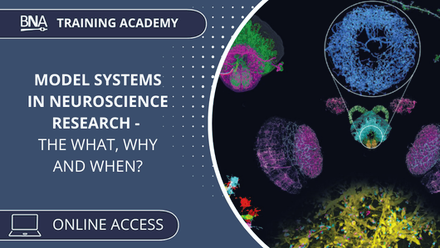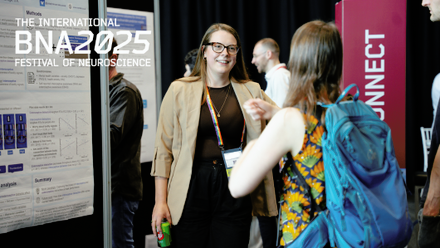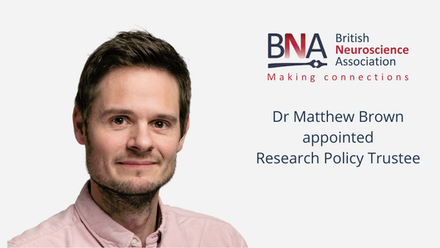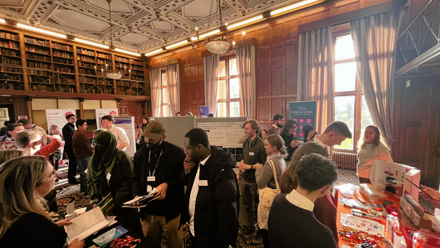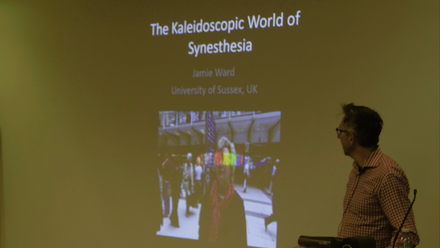Middlesex BNA Local Group launches with a bang, and a laugh
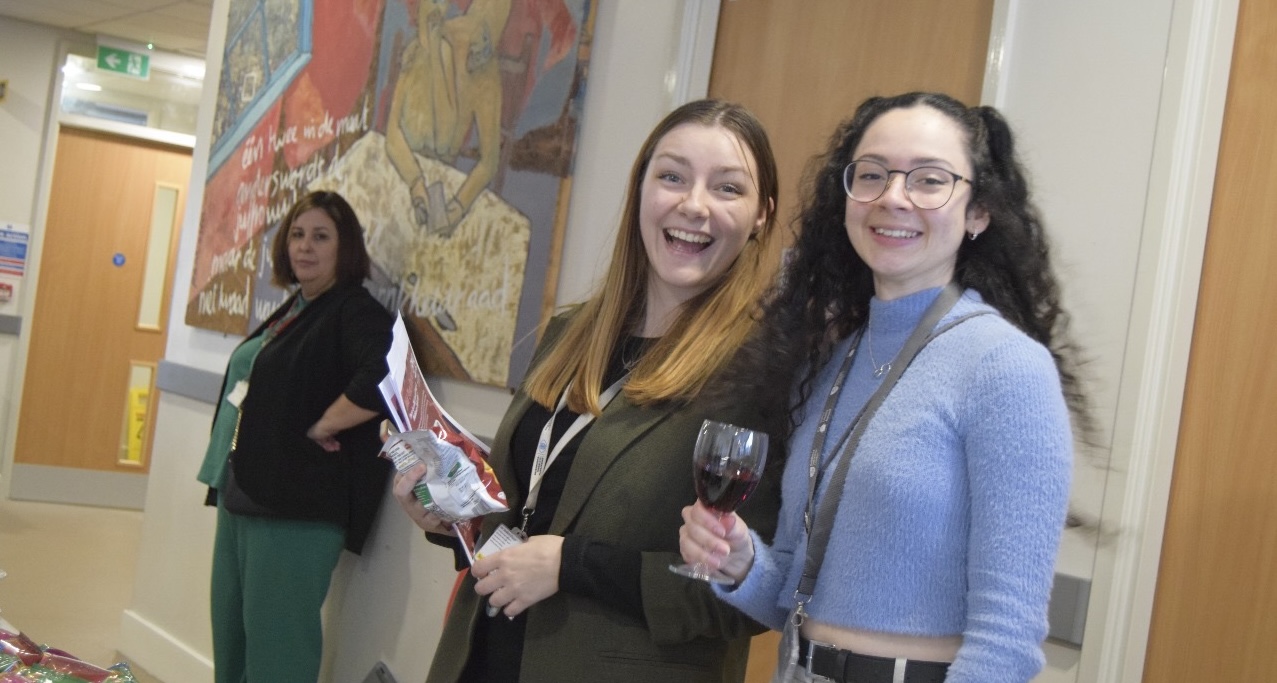
Middlesex area BNA Local Group Representative Ana Gonzalez Jorge hosts the launch event's drinks reception
Over the last few months, a buzz has been humming among Middlesex's neuroscience community. Back in October last year, a small group of neuroscience and psychology students had joined the BNA wanting to build community between their two parts of Middlesex University. After getting in touch with the BNA's Membership & Communities Manager to talk about what might be the best way to do this, they decided to become Local Group Representatives.
The nascent leadership team begin growing a broad coalition of BNA members across the university to form a BNA Local Group which would act as a structure through which anyone local to the area – not just in the university – could strengthen their connections across neuroscience and to each other, banding together to work out their common priorities and developing collaborative ways to solve them. But something like this would only be effective if everyone could get involved. To make sure that they engaged as many people as possible they used course email lists, spoke to new student cohorts, and even knocked on office doors to speak to people about what the community was building together. Associate Professor in Psychology Dr Alex Jones soon joined the team of Reps, and helped generate even further interest among colleagues.
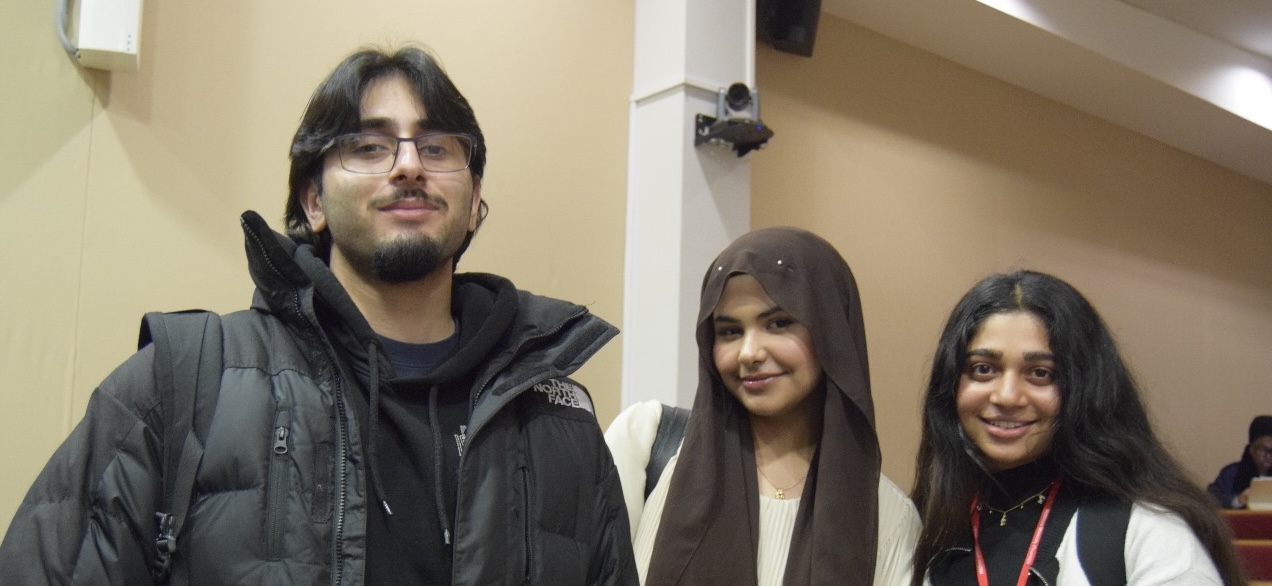
Middlesex area BNA Local Group Representatives Roman Navin, Sidra Fatima and Kate Furtado
On March 20th, as excitement about the growing project was reaching its peak, the team officially launched the Middlesex area BNA Local Group with a fantastic in-person event bringing everyone together. The event featured guest speaker Professor Sophie Scott – Director of Cognitive Neuroscience at UCL – whose talk entitled The Neuroscience of Laughter was the perfect way to kick off the group, on a subject that was engaging, insightful, and incredibly relevant to both neuroscience and psychology students and staff. Professor Scott took the group through her fascinating research on vocal communication and emotional expression, showing how laughter is much more than a response to humour, but is a core part of how we connect with others and navigate the social world. The session was followed by a relaxed drinks reception where students and staff had the chance to connect and reflect on the ideas shared.
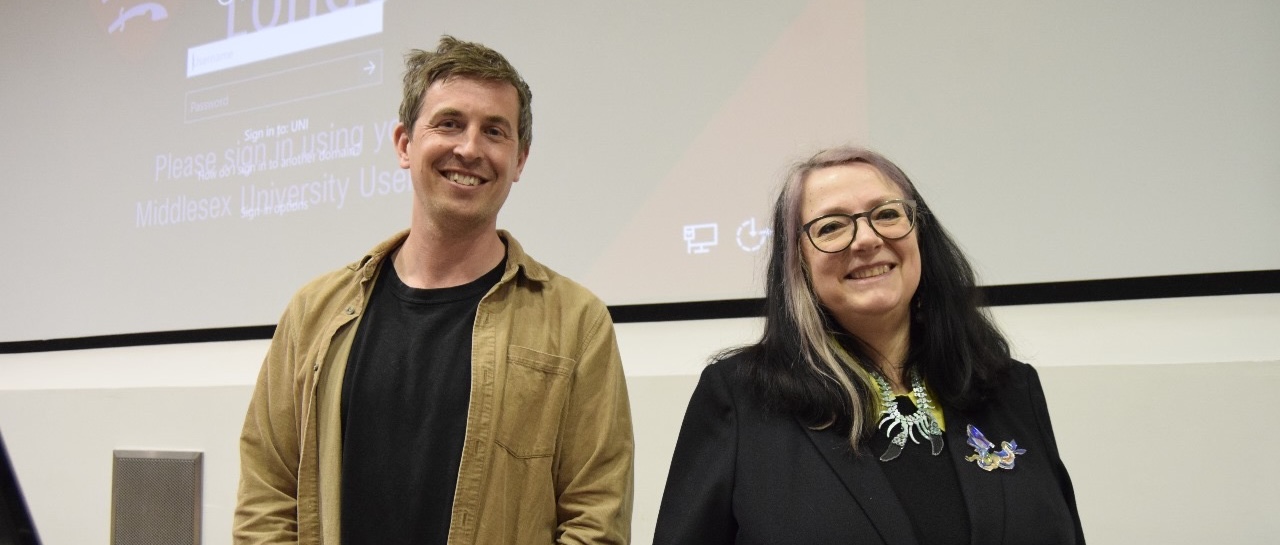
Middlesex area BNA Local Group Representative Dr Alex Jones alongside guest speaker Prof Sophie Scott
As the launch event for our Local Group, we also introduced the purpose behind the group: to create a space where staff, students and beyond can collaborate, discuss local challenges in neuroscience research and education, and work together towards real change. Conversation flowed, and ideas began to surface on what the immediate needs were felt in common between the different parts of the local community. Going forward, the group will develop these ideas as it expands, and use them to put together its first official project making use of Local Groups Funding.
The group is proud of how from the outset, its work has sparked a lot of interest and meaningful conversations about what’s possible when researchers come together through the BNA. Their next goals include reaching outside of the university to researchers and clinicians working in neighbouring hospitals, bringing them into the fold of the Local Group so that its activity can be even more representative of the true breadth of the local neuroscience community. This is just the beginning, and we’re so excited about what’s to come!
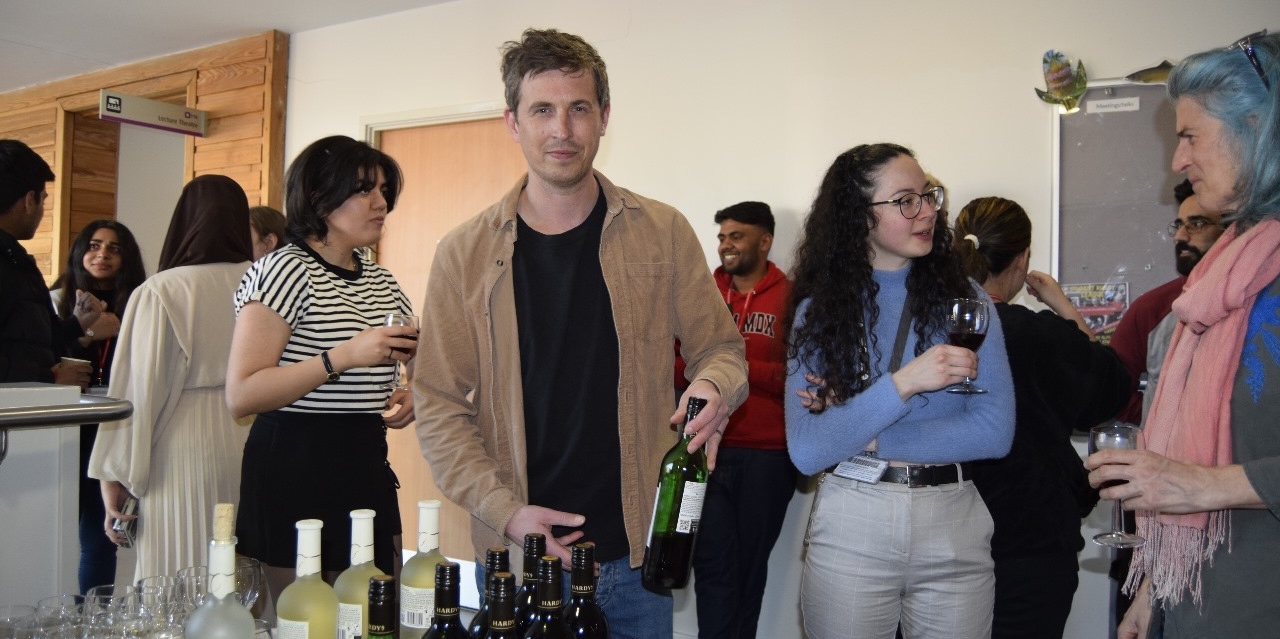
Middlesex area BNA Local Group Representative Dr Alex Jones hosts the launch event's drinks reception
If you could change one thing about neuroscience in your local area, what would it be? Do your peers and others across the different institutions in your area feel similarly? By joining your BNA Local Group and working with your Local Group Representatives to devise a strategy and secure project funding, together you can drive local change, and take collective ownership over the future of neuroscience where you are.

